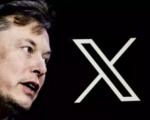Arielle Roth, President Donald Trump’s nominee to lead the National Telecommunications and Information Administration (NTIA), firmly rejected claims on Thursday that she would steer a $42 billion broadband expansion program in favor of Elon Musk’s satellite internet firm, Starlink.
During a Senate confirmation hearing, Roth stated, “I will administer the program to the benefit of the American people, not any single individual or company,” amid Democratic concerns that Trump allies could direct a large share of funds toward Musk, a close adviser to the president.
Concerns Over Program Priorities
The broadband initiative, created under the 2021 Infrastructure Investment and Jobs Act, prioritizes fiber-optic technology, widely regarded as more cost-effective and capable of delivering faster speeds than satellite internet. However, Democrats fear the Trump administration may shift that priority to favor Starlink, potentially giving Musk up to $20 billion in funding.
Senator Ed Markey (D-MA) criticized any such move:
“I strongly urge you to oppose this giveaway to Elon Musk,” he said, emphasizing the law’s fiber-first intent.
While the program does not ban satellite services, it restricts their use to areas where fiber installation would be excessively costly.
Republican Pushback
Republicans, meanwhile, argue the Biden administration politicized the program by moving too slowly and allegedly blacklisting Musk. Senator Ted Cruz (R-TX) pointed to delays in approvals and called for a more tech-neutral approach.
Only three states have had their proposals approved, and just four have finalized provider selections. Thirty more are still reviewing applications.
Shift Toward Tech-Neutral Strategy
Earlier this month, Commerce Secretary Howard Lutnick announced a review aimed at ensuring the program supports the most cost-efficient broadband solutions—whether fiber, satellite, or other technologies.
“We want an outcome-driven, tech-neutral approach that prioritizes getting the most Americans connected at the lowest cost,” Lutnick said.
Stakes for Rural America
The NTIA’s Broadband Equity, Access, and Deployment (BEAD) program is one of the largest government efforts to close the digital divide in rural America. As debates continue over technology preferences and political influences, Roth’s confirmation could play a pivotal role in the program’s direction during Trump’s second term.















